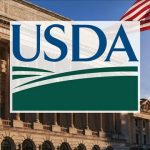
What’s more, Vilsack and U.S. Sen. Tammy Baldwin announced, the USDA is investing more than $114 million in infrastructure projects in rural Wisconsin, including millions for clean drinking water.
Thursday, Vilsack and Baldwin were set to visit a dairy farm in Cottage Grove, and the city of Bloomer, in Chippewa County, to help promote President Joe Biden’s $1.7 trillion Build Back Better plan that’s stalled in the Senate.
In a Journal Sentinel interview, Vilsack touted recent changes to the USDA’s Dairy Margin Coverage program that provides farmers with a kind of insurance policy when the national price of milk and the average cost of cattle feed become imbalanced.
The signup period for the voluntary program ends Feb. 18, enabling farmers to get the safety-net coverage for another year, and in some cases, to receive retroactive payments.
The National Milk Producers Federation has projected more than $1 billion will be paid out to farmers under the program for 2021. In Wisconsin, it’s expected to be more than $248 million, or around $51,000 per farm enrolled in the program.
Vilsack also pointed to another USDA effort, aimed at helping dairy farmers recover revenue lost during the early days of the pandemic, and he talked about the path forward.
“After the first of the year, we’re going to continue to look for ways in which we can expand exports. We’ve knocked down barriers and tariffs in a number of places, and roughly 17% of all the dairy produced in this country is exported,” he said. “And we’re going to continue to look for new market opportunities …and ways in which using the purchasing power and procurement power of the USDA can create more market stability.”
Since 2000, Wisconsin has lost around 68% of its dairy farms, most of them small- and medium-sized operations that couldn’t withstand years of low milk prices, rising costs, and trouble finding hired help. Yet milk production has risen as the remaining farms have gotten larger or more efficient through improved cattle genetics and advances in technologies.
The Biden administration has claimed it’s transforming America’s food system to have a greater focus on more resilient local and regional food production, fairer markets for farmers, and new revenue streams through investments in clean energy.
“The challenge is to create a strong local and regional food system, markets that are specifically designed to allow local producers to be able to negotiate a price,” Vilsack said.
Some farmers say tweaking Dairy Margin Coverage and other programs isn’t enough. For years, they’ve asked the USDA to implement a milk supply management system, like what Canada has, to keep markets from being flooded with cheap milk.
But the resulting higher prices would pose problems for consumers, according to Vilsack.
“Until somebody can figure out how you can have a supply management system that doesn’t result in significantly higher costs for a gallon of milk or a pound of cheese, which would hurt consumers and the industry, I think you’ve got a real challenge,” he said.
Some farmers say the next federal Farm Bill, in 2023, could reform dairy markets in a way that creates more price stability for farmers.
“Given the record amount of farm bankruptcies, the ongoing farm losses, and challenges that farmers have faced here in America’s Dairyland, it’s clear that we need to improve upon the last Farm Bill,” said Darin Von Ruden, president of Wisconsin Farmers Union, a group that represents mostly small and mid-size farms.
“Additionally, farmers — and all Americans — have been faced with the clear evidence of climate change, which is going to make the conservation component of the next Farm Bill critical,” Von Ruden said.
However, USDA discussions on the comprehensive farm legislation won’t get under way until next year, according to Vilsack.
“We’re not in a position today to talk about what we think might be, or ought to be, included,” he said.
One problem in writing national dairy policy is there aren’t universal solutions.
“There’s a different type of dairy industry in Wisconsin compared to the dairy industry in California, which is different than the dairy industry in New Mexico, which is different than the dairy industry in Vermont. And so the challenge in terms of improving the system is basically trying to get a consensus,” Vilsack said.
Still, farmers need more than a “safety net” that may be dissolved in a few years, said Marin Bozic, an assistant professor of agricultural economics at University of Minnesota.
“Farm Bills authorize dairy programs for five years. In deciding whether to come back to the family farm, young adults from dairy families must contemplate what is likely to happen over the next 40 years. That is eight Farm Bills,” Bozic said.
The clean-water aspect of Vilsack and Baldwin’s trip to Bloomer is to highlght federal spending on replacing old lead pipes and upgrading wastewater treatment facilities.
The City of Bloomer, for example, will use $27.6 million in infrastructure money to eliminate toxic levels of lead in the water system for its 3,539 residents. The City of Waterloo, in Jefferson County, will use $21 million to upgrade an aging wastewater treatment system.
“Every Wisconsin community needs access to clean drinking water and an environment that’s free of toxic chemicals,” Baldwin said.
Two independent analyses estimate the Build Back Better Act includes more than $2 trillion in spending and tax cuts. If all the temporary programs were made permanent, they could cost upwards of $5 trillion, according to estimates from budget watchdog groups.
Republicans have called it ineffective, runaway spending.
“As the Biden administration fails to provide relief for farmers experiencing record-high inflation on heat, feed, and fertilizer, Tom Vilsack’s visit to tout Joe Biden’s costly policies will fail to win over rural Wisconsin families,” Republican National Committee spokeswoman Rachel Reisner said in a statement.

























